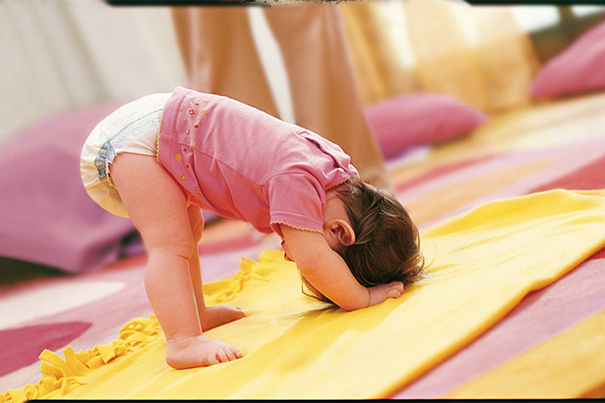
All About Thumb-Sucking
If you’re worried about your baby’s thumb or finger-sucking, take heart – it’s a common and harmless habit in the first 4 or 5 years. Learn all about thumb-sucking here, including why your baby does it, how it can affect teeth and how long it typically lasts. Plus, find out how to help your child break the habit when the time comes.
Why Do Babies Suck Their Thumbs?
Babies are born with a natural sucking reflex, which is why some infants will automatically put their thumb or fingers in their mouth and suck. Thumb-sucking has a soothing and calming effect for babies and young children, which is why you might notice your baby sucking his or her thumb while going to sleep or for comfort. Thumb-sucking is not a cause for concern: It’s perfectly normal for your baby to suck his or her thumb.
When Do Babies Start Sucking Their Thumb and When Should They Stop?
Thumb-sucking often starts at a very young age. In fact, some babies begin sucking their thumbs and fingers in the uterus before they’re even born yet! Other newborn babies might start sucking their thumbs or fingers a little later to comfort themselves between feeds. There are also babies who won’t start sucking their thumbs at all. Once your baby starts, it can easily become a habit, but it’s a common one and there’s no need to worry if your baby is sucking his or her thumb regularly. Most children grow out of it at around 4 years old, or even earlier.
When to Try Help Your Child Stop Thumb-Sucking?
Although thumb-sucking is normal for babies and toddlers, if it continues after your child’s second teeth start to erupt – usually at around the age of 6 or 7 – it could become a concern. This is because once your toddler’s baby teeth start to be replaced by permanent teeth, thumb-sucking can affect the shape of the mouth and affect how the teeth line up. It may be possible to correct these kinds of problems later through the use of dental braces; but stopping thumb-sucking in time can reduce or eliminate the need for orthodontic treatment later on. The way thumb-sucking affects the mouth and teeth at this stage varies from child to child, depending on how long and intensely he or she sucks, and the positioning of the thumb or finger inside the mouth. It may take some time to help your child to stop thumb-sucking completely, so at age 4 or 5 it might be time to start weaning him or her off the habit so that your child is no longer thumb-sucking when the adult teeth arrive.
How to Stop Your Baby’s or Toddler’s Thumb-Sucking
For a baby or toddler, you don’t need to stop the thumb-sucking yet. It’s perfectly OK for your baby or toddler to be sucking his or her thumb. Once your child is around 4 to 5 years old or more, it might be time to start helping him or her stop so that it’s no longer a habit when those permanent teeth start to arrive. Keep in mind, it won’t happen overnight, and you’ll need to be patient with your child. Here are a few tips for helping your child to stop thumb-sucking:
FREQUENTLY ASKED QUESTIONS
Thumb-sucking is generally harmless in babies and children under 5 years old. It offers comfort and can be soothing for your baby or toddler. In older children, however, it can cause problems with the positioning of the teeth and the development of the mouth.
The Bottom Line
Thumb-sucking in the early years is not something to worry about. It's a common behaviour that provides comfort for many babies and young children. There’s a good chance your toddler will stop doing it naturally by about the age of 4, if not earlier. Even if you notice your child occasionally sucking his or her thumb after turning 5, it won’t necessarily cause problems for the development of the mouth and teeth. However, if it’s a regular thing and the habit doesn’t show any sign of going away when your child reaches about age 5, there are some easy ways to help him or her stop thumb-sucking. Patience and consistency on your part – with a little help from your child’s dentist if needed – will help your little one conquer the thumb-sucking habit once and for all.
Read more about Toddler
Join Pampers Club and get:










